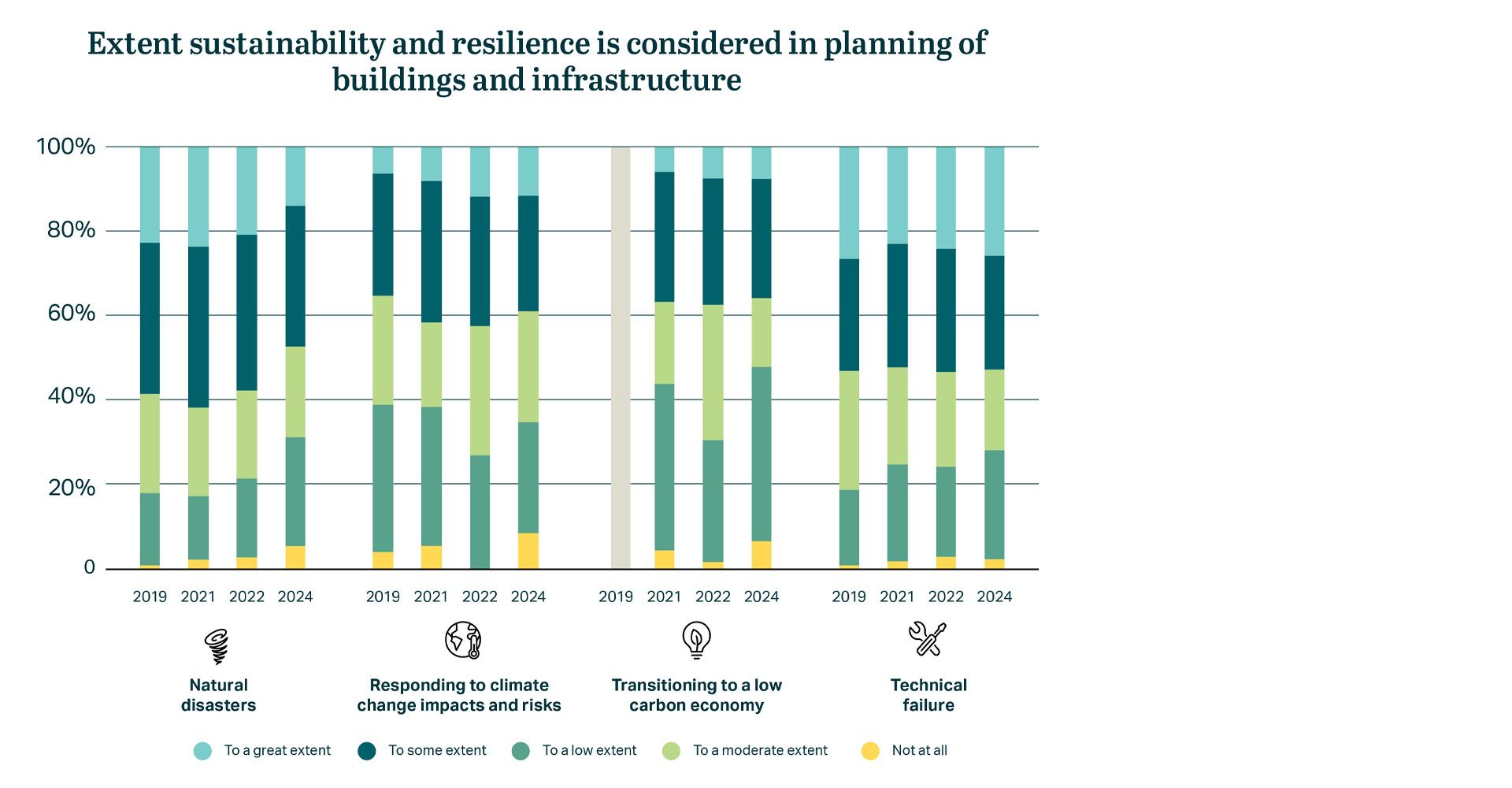As an industry that has demonstrated resilience and sustainability in the face of natural disasters and technical failures, New Zealand's infrastructure sector continues to face new and evolving challenges. The extreme weather events of 2023, including Cyclone Gabrielle, underscored the urgent need for infrastructure that can withstand the growing impacts of climate change.
The industry is increasingly focused on integrating environmental, social, and governance (ESG) considerations to create long-term solutions that are both resilient and sustainable. This shift prioritises not only recovery from extreme weather but also the development of infrastructure that supports broader sustainability goals, ensuring that roads, bridges, and public transport systems are equipped to handle future challenges. Through strategic investments, a foundation is being laid for an infrastructure network that addresses current needs while safeguarding the well-being of future generations. This approach underscores a commitment to sustainable, resilient infrastructure.
Investment planning for sustainability and resilience
More than half of the respondents continue to prioritise transitioning to a lower-carbon economy and addressing climate change impacts, consistent with the focus highlighted in the 2022 survey. However, there has been a notable increase in respondents since 2022 who view these priorities as being of lesser importance. A consistent challenge highlighted is the lack of a clear vision and commitment from the government, which many feel obstructs long-term progress. While New Zealand has established a framework and ambitious targets for climate action, inconsistent policies, slow implementation, and gaps in critical sectors hinder the clarity and commitment needed to meet its goals effectively.
Although securing funding remains a key issue, respondents see opportunities to align efforts across government, industry and communities to bridge these gaps. Community engagement is increasingly recognised as crucial, with many acknowledging the long-term benefits of investments in resilience, even if these outcomes aren't immediately visible. Furthermore, evolving discussions on managed retreat are beginning to address more complex challenges, highlighting the need for sensitive handling of these issues within climate change strategies. Overall, respondents call for more strategic funding solutions and stronger communication to ensure the development of infrastructure that is both sustainable and resilient in the face of future challenges.

The challenges of responding to climate risks
Several themes emerged when asking respondents about the biggest challenges the industry faces in responding to climate change. The least surprising response was flooding, sea level rise, and extreme weather events, which are increasingly seen as national-level threats to infrastructure. A significant issue highlighted by respondents is the lack of a clear and committed government climate strategy, which many believe is hindering progress. Securing adequate funding for adaptation measures is another ongoing concern. Community support remains critical, particularly for resilience projects that may not show immediate benefits. The complex and often contentious issue of managed retreat was also raised, emphasising the need for careful handling in climate adaptation strategies. These challenges highlight the urgent need for clear policy direction, innovative funding solutions, and effective engagement strategies to build long-term infrastructure resilience.